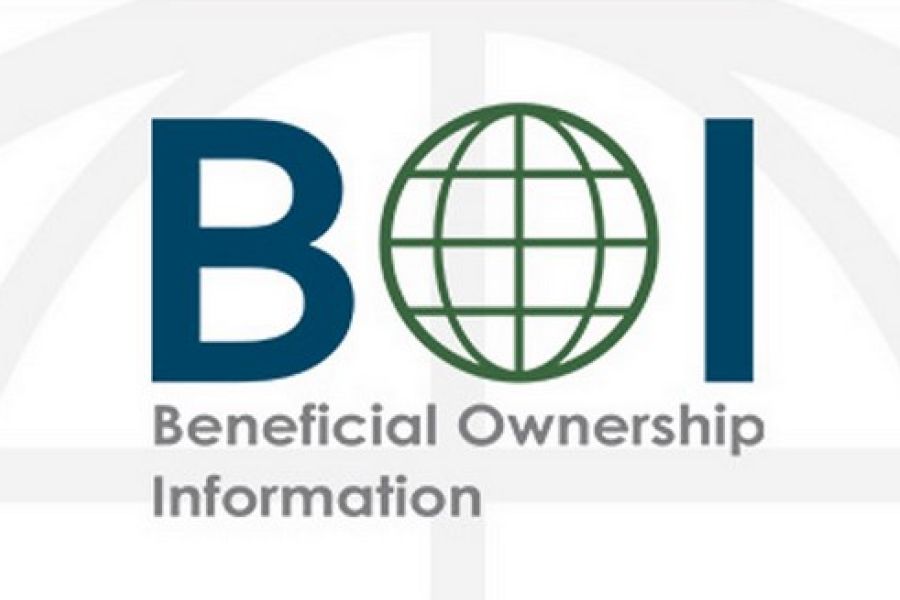Chances are, you’re more concerned about your 2024 tax return right now than you are about your 2025 tax situation. That’s understandable because your 2024 individual tax return is due to be filed by April 15 (unless you file for an extension). However, it’s a good time to familiarize yourself with tax amounts that may have changed for 2025 due to inflation. Not all tax figures are adjusted annually for inflation, and some amounts only change when Congress passes new laws. In addition, there may be tax changes due to what’s happening in Washington. With Republicans in control of both the White House and Congress, we expect major tax law changes in the coming months. With that in mind, here are some Q&As about 2025 tax limits. I...

Deepfakes — digital forgeries produced by artificial intelligence (AI) — have blurred the line between reality and illusion. On the upside, AI-generated deepfakes have revolutionized special effects in motion pictures and made certain education and health care industry processes more effective. Yet there are also plenty of risks associated with deepfakes. Current threats Deepfakes purporting to represent public officials can disseminate disinformation and generate fake news stories. And if fraud perpetrators use deepfake images of a company’s owner or senior executives, they can more easily perpetrate phishing schemes and steal sensitive data. The threat extends beyond visible manipulation to audio. Deepfakes can mimic a specific individual’s voice to commit theft. For example, a so-called “business partner” might leave a voicemail instructing someone in your accounting department to wire...
The IRS announced that 2025 filing season for individual income tax returns started on January 27. That’s when the agency began accepting and processing 2024 tax year returns. Even if you typically don’t file until much closer to the mid-April deadline (or you file for an extension), you may want to file earlier this year. The reason is you can potentially protect yourself from tax identity theft. Here are some answers to questions taxpayers may have about filing. How can your tax identity be stolen? Tax identity theft occurs when someone uses your personal information — such as your Social Security Number — to file a fraudulent tax return and claim a refund in your name. One of the simplest yet most effective ways to protect yourself from...
To determine how much a business is worth, a valuation professional must develop a comprehensive understanding of how it runs. Financial statements and tax returns tell only part of the story. In-person inquiries provide additional insights that can significantly impact value conclusions. Owner and manager interviews If a valuator hasn’t previously toured a company’s facilities, expect him or her to request a site visit soon after being hired. This gives the expert an opportunity to observe business operations and interview company personnel. Depending on the company’s size and the engagement’s confidentiality requirements, the valuation expert might want to talk to managers from various departments in addition to the owner(s) and other top leaders. Interviews typically cover a broad range of subjects, including but not limited to: Operations history, ...
The nationwide price of gas is slightly higher than it was a year ago and the 2025 optional standard mileage rate used to calculate the deductible cost of operating an automobile for business has also gone up. The IRS recently announced that the 2025 cents-per-mile rate for the business use of a car, van, pickup or panel truck is 70 cents. In 2024, the business cents-per-mile rate was 67 cents per mile. This rate applies to gasoline and diesel-powered vehicles as well as electric and hybrid-electric vehicles. The process of calculating rates The 3-cent increase from the 2024 rate goes along with the recent price of gas. On January 17, 2025, the national average price of a gallon of regular gas was $3.11, compared with $3.08 a year earlier, according...
Once you reach age 73, tax law requires you to begin taking withdrawals — called Required Minimum Distributions (RMDs) — from your traditional IRA, SIMPLE IRA and SEP IRA. Since funds can’t stay in these accounts indefinitely, it’s important to understand the rules behind RMDs, which can be pretty complex. Below, we address some common questions to help you navigate this process. What are the tax implications if I want to withdraw money before retirement? If you need to take money out of a traditional IRA before age 59½, distributions are taxable, and you may be subject to a 10% penalty tax. However, there are several ways that you can avoid the 10% penalty tax (but not the regular income tax). They include using the money to...
New and used “heavy” SUVs, pickups and vans placed in service in 2025 are potentially eligible for big first-year depreciation write-offs. One requirement is you must use the vehicle more than 50% for business. If your business usage is between 51% and 99%, you may be able to deduct that percentage of the cost in the first year. The write-off will reduce your federal income tax bill and your self-employment tax bill, if applicable. You might get a state tax income deduction too. Setting up a business office in your home for this year can also help you collect tax savings. Here’s what you need to know about the benefits of combining these two tax breaks. First, buy a suitably heavy vehicle The generous first-year depreciation deal is...
Whether you’re an entrepreneur seeking start-up funds or the owner of an established business that needs capital to make an acquisition or develop new product lines, be careful when looking for a lender. To avoid fraudsters and potentially dire consequences, you need to take your time and carefully screen anyone eager to lend you money. After all, there must be something in it for them. Ensure that those motivations are honest. Signs signifying trouble Predatory lenders often offer loans with punitive terms and conditions and nonrefundable upfront fees. They especially target businesses with a checkered history or inadequate collateral because they know such borrowers have fewer options and may be more willing to compromise. To tempt borrowers, bad actors might advertise a quick closing or a willingness...
As posted to US Department of Treasury website on 3/2/25 The Treasury Department announced on 3/2/25 that, with respect to the Corporate Transparency Act, not only will it not enforce any penalties or fines associated with the beneficial ownership information reporting rule under the existing regulatory deadlines, but it will further not enforce any penalties or fines against U.S. citizens or domestic reporting companies or their beneficial owners after the forthcoming rule changes take effect either. The Treasury Department will further be issuing a proposed rulemaking that will narrow the scope of the rule to foreign reporting companies only. Treasury takes this step in the interest of supporting hard-working American taxpayers and small businesses and ensuring that the rule is appropriately tailored to advance the public...
As higher education costs continue to rise, you may be concerned about how to save and pay for college. Fortunately, several tools and strategies offered in the U.S. tax code may help ease the financial burden. Below is an overview of some of the most beneficial tax breaks and planning options for funding your child’s or grandchild’s education. Qualified tuition programs or 529 plans A 529 plan allows you to buy tuition credits or contribute to an account set up to meet your child’s future higher education expenses. State governments or private institutions establish 529 plans. Contributions aren’t deductible. They’re treated as taxable gifts to the child, but they’re eligible for the annual gift tax exclusion ($19,000 in 2025). If you contribute more than the annual exclusion limit...
- 1
- 2
- 3
- 4
- 5
- 6
- 7
- 8
- 9
- 10
- 11
- 12
- 13
- 14
- 15
- 16
- 17
- 18
- 19
- 20
- 21
- 22
- 23
- 24
- 25
- 26
- 27
- 28
- 29
- 30
- 31
- 32
- 33
- 34
- 35
- 36
- 37
- 38
- 39
- 40
- 41
- 42
- 43
- 44
- 45
- 46
- 47
- 48
- 49
- 50
- 51
- 52
- 53
- 54
- 55
- 56
- 57
- 58
- 59
- 60
- 61
- 62
- 63
- 64
- 65
- 66
- 67
- 68
- 69
- 70
- 71
- 72
- 73
- 74
- 75
- 76
- 77
- 78
- 79
- 80
- 81
- 82
- 83
- 84
- 85
- 86
- 87
- 88
- 89
- 90
- 91
- 92
- 93
- 94
- 95
- 96
- 97
- 98
- 99
- 100
- 101
- 102
- 103
- 104
- 105
- 106
- 107
- 108
- 109
- 110
- 111
- 112
- 113
- 114
- 115
- 116
- 117
- 118
- 119
- 120
- 121
- 122
- 123
- 124
- 125
- 126
- 127
- 128
- 129
- 130
- 131
- 132
- 133
- 134
- 135
- 136
- 137
- 138
- 139
- 140
- 141
- 142
- 143
- 144
- 145
- 146
- 147
- 148
- 149
- 150











